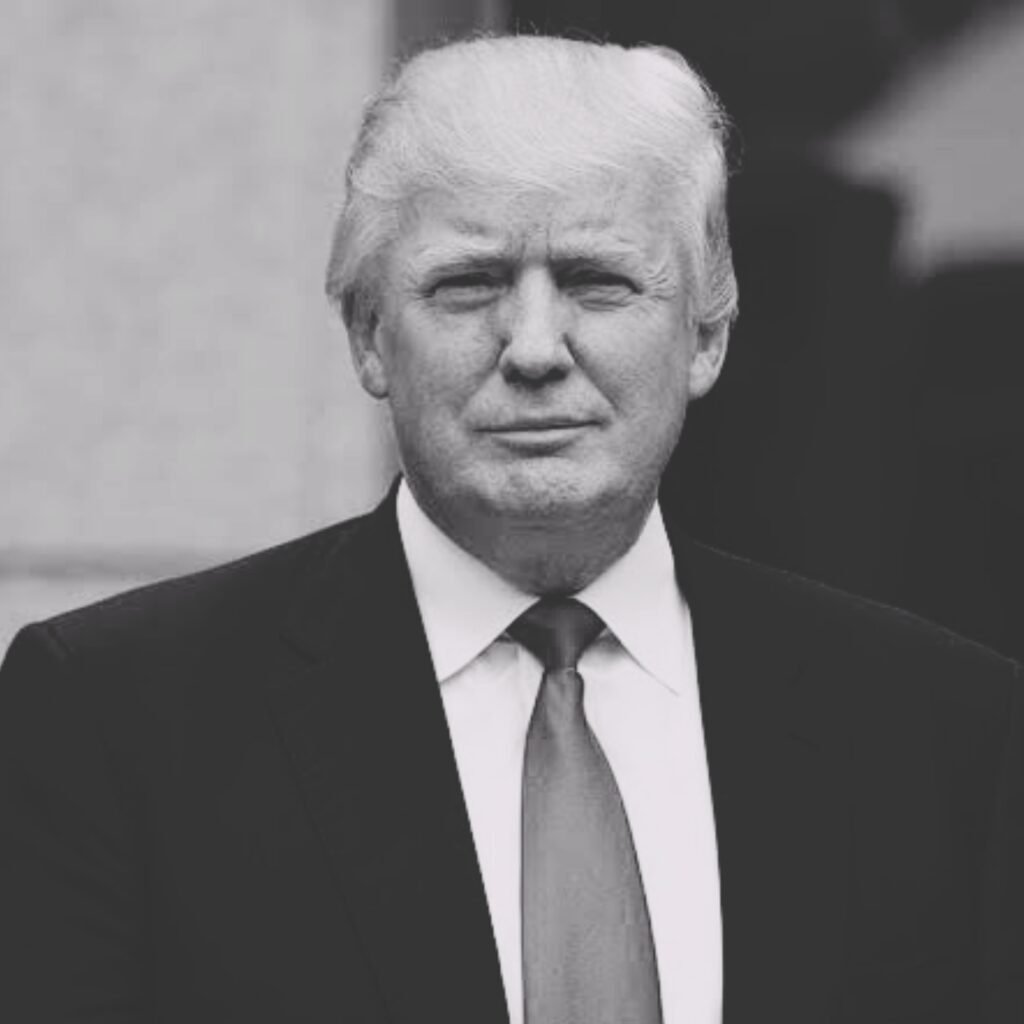In a historic decision, U.S. District Judge Aileen Cannon dismissed the classified documents case against former President Donald Trump, ruling that the appointment of special counsel Jack Smith was unconstitutional. This unprecedented ruling challenges the longstanding practice of appointing special prosecutors and could lead to significant legal and constitutional ramifications, impacting the broader landscape of U.S. law and politics.
Grounds for Dismissal

Judge Cannon, who was appointed by Trump, found that Attorney General Merrick Garland lacked the authority to appoint Jack Smith as special counsel. She asserted that the Appointments Clause of the U.S. Constitution only allows Congress or the President to appoint such positions, not the Attorney General. “The Superseding Indictment is DISMISSED because Special Counsel Smith’s appointment violates the Appointments Clause of the United States Constitution,” wrote Cannon.
This ruling is expected to delay the case considerably as the Department of Justice (DOJ) prepares to appeal. Smith had contested the argument, with support from previous federal court rulings that upheld the constitutionality of special counsels. However, Cannon’s ruling aligns with conservative legal reasoning, notably echoed by Supreme Court Justice Clarence Thomas in a recent concurrence.
Legal and Historical Context
Cannon’s decision marks a significant departure from nearly 150 years of U.S. legal history, during which special prosecutors have been appointed to handle significant scandals, including the Whiskey Ring, the Teapot Dome scandal, and the Watergate investigation. The Supreme Court first authorized a special prosecutor’s investigation during the Nixon tapes decision, and over the intervening decades, eight separate judges have endorsed the practice of attorneys general appointing special prosecutors, unanimously rejecting the constitutional concerns of numerous criminal defendants.
Implications of the Ruling
Peter Carr, spokesperson for the special counsel, criticized the decision, stating, “The dismissal of the case deviates from the uniform conclusion of all previous courts to have considered the issue that the Attorney General is statutorily authorized to appoint a Special Counsel.” The Department of Justice (DOJ) has announced its intention to appeal the ruling to the Court of Appeals for the 11th Circuit.
Carr did not explicitly signal whether Smith would pursue that appeal, when prosecutors would file one, or where they would file it. Until an appellate court weighs in, Cannon made clear that her order does not affect special counsel appointments in any other case.
Trump Case Background

The case against Trump involved allegations of taking classified documents to his Mar-a-Lago club, storing them in unsecured locations, and refusing to return them to the government. The DOJ had empowered Smith to prosecute the case, leading to significant political and legal ramifications. The DOJ’s authorization of Smith’s appointment aimed to address these serious charges. However, Cannon’s ruling brings this prosecution to a halt, at least temporarily.
DOJ Response and Appeal
A DOJ spokesperson announced plans to appeal the dismissal to the Court of Appeals for the 11th Circuit. “The dismissal of the case deviates from the uniform conclusion of all previous courts to have considered the issue that the Attorney General is statutorily authorized to appoint a Special Counsel,” said Peter Carr, spokesperson for the special counsel.
Future Legal Battles
Cannon’s ruling is expected to ignite another constitutional battle. Legal experts predict a swift appeal. Attorney Matthew Seligman noted, “This decision is unmoored from precedent and from the text of the statutes that she claims she’s interpreting.”
There is also speculation about whether Smith will seek to have the case reassigned due to perceived bias. Previously, the 11th Circuit reversed Cannon’s decision to block prosecutors from using certain evidence in the investigation. After the FBI’s search of Mar-a-Lago, the 11th Circuit reversed Cannon’s decision to block prosecutors from using certain evidence for their active investigation under a special master review of the seized files based on assertions of attorney-client privilege and executive privilege. Two of the judges who unanimously reversed her were also Trump appointees, and according to an extraordinary report in the New York Times, the chief judge of the Southern District of Florida — where Cannon sits — unsuccessfully urged her not to take up Trump’s criminal case. Cannon refused, and she frequently frustrated prosecutors — through her actions and inactions — on everything from scheduling matters to sealing procedures to proposed jury instructions. She granted extensive arguments to every defense motion, slow-walking the case to such an extent that she had nine fully-briefed motions remaining on her docket at the time she dismissed Trump’s case, according to The Guardian.
However, Cannon’s rulings since Trump’s indictment in the documents case left little room to hand prosecutors an appealable issue and seek her removal — until now. “Prior to this decision, I thought it was unlikely that he would do so,” Seligman said, referring to the odds that Smith would seek to remove Cannon from the case during an 11th Circuit appeal. “He’s decided, presumably as a strategic matter, that that was not warranted yet, and I think that this decision may change that calculus.”
Supreme Court Signals
In order to reach her decision, Cannon had to first distinguish existing Supreme Court precedent. In 1974, the Supreme Court unanimously signed off on a special prosecutor’s authority in ordering then-president Richard Nixon to turn over subpoenaed tapes. Since Nixon did not dispute the special prosecutor’s authority, Cannon described that holding as “dictum,” or legal reasoning that is not essential to the outcome of a case and not binding on her court. “Across hundreds of pages of briefing (and hours of oral argument) in Nixon, neither party challenged the Special Prosecutor’s validity or the Attorney General’s appointment authority,” Cannon wrote in her ruling. “In fact, on numerous occasions, President Nixon expressly stated that he did not contest these points.”
Roughly a decade and a half later, the Supreme Court provided further validation to the concept of special prosecutors in a separate decision: Morrison v. Olson, which upheld a now-expired Watergate-era anti-corruption law called the Independent Counsel Act. In a long line of cases, prosecutors cited that 1988 decision in support of the proposition that special counsels did not violate the separation of powers, but Cannon rejected the argument that the precedent applied because the statute it upheld had lapsed. Garland cited four other statutes to justify Smith’s appointment, but Cannon repudiated the applicability of them all.
Trump and his allies have long disputed the authority of special prosecutors — until now, to no avail. Special Counsel Robert Mueller successfully fended off attacks on his prosecutorial authority by Manafort, Miller, and Russian bot farm Concord Management. Though Manafort’s trial judge accepted the limited reach of the Nixon precedent, the D.C. Circuit emphatically found the Supreme Court’s Nixon and Morrison decisions were binding when Miller challenged Mueller’s appointment in the case in re Grand Jury Investigation. Cannon hand-waved that out-of-circuit precedent as relying on “presuppositions” that she rejected.
For Cannon, the more useful view from the Supreme Court came from Justice Clarence Thomas, who went out of his way to opine on the Appointments Clause issue in a concurring opinion of Trump’s immunity case. Smith’s constitutional authority was not an issue before Thomas at that time, and the Court did not rule on it. No other justice expressed an opinion on the matter, but Thomas wrote separately to express his opposition to the constitutionality of Smith’s appointment.
Cannon took notice, citing Thomas’ concurring opinion no fewer than three times.
Broader Implications
If upheld, Cannon’s ruling could have far-reaching effects on the DOJ’s ability to appoint key officials, potentially affecting positions like the principal deputy solicitor general and deputy assistant attorneys general. As noted by legal scholars, this decision could undermine the DOJ’s operational framework and complicate future investigations involving high-profile political figures.
“This decision, if it’s allowed to stand, would call into question the lawfulness of something like a dozen or more very important officials within the Department of Justice, and so I think that there’s a very strong institutional interest in having this decision reversed on the merits,” Seligman, a fellow at the Constitutional Law Center at Stanford Law School, said.
What’s Next for Jack Smith?
Smith can appeal the dismissal back to the 11th Circuit, where his team prevailed before Trump was indicted, or he can try to leapfrog the appeal directly to the Supreme Court, which prosecutors unsuccessfully tried to do to expedite Trump’s immunity appeal in his case alleging interference in the 2020 presidential election. In the immunity case, the Supreme Court waited for the D.C. Circuit to weigh in before taking up the case and handing Trump a sweeping victory on the last day of their term.
U.S. District Judge Tanya Chutkan, who is presiding over Trump’s election interference case, is not bound by Cannon’s ruling, but she is bound by the D.C. Circuit precedent contradicting it. Should Trump press his challenge of Smith’s appointment in Chutkan’s court, there would be no place left to go but the Supreme Court. Especially in the wake of the Supreme Court’s immunity decision, any order affirming Cannon’s ruling would make criminal accountability for former presidents all the more elusive.
“If this ruling stands, it will become very hard to appoint quasi-independent special counsels to investigate an incumbent administration,” Blackman, who argued in Trump’s support, noted in a phone interview. “If you combine Trump v. United States on immunity with this decision, you have a one-two punch where current presidents have this immunity, and now, you can’t really appoint an independent counsel,” he added. “This will make it very hard to try to use the criminal justice system to even investigate a current president, if you can’t indict him.”
Judge Cannon’s dismissal of the Trump documents case due to the unconstitutionality of special counsel appointments marks a pivotal moment in U.S. legal history. The impending appeal will likely shape the future of special prosecutions and the broader legal landscape. The controversy surrounding Smith’s appointment and the subsequent dismissal of Trump’s case have set the stage for intense legal battles and potential constitutional challenges ahead.



